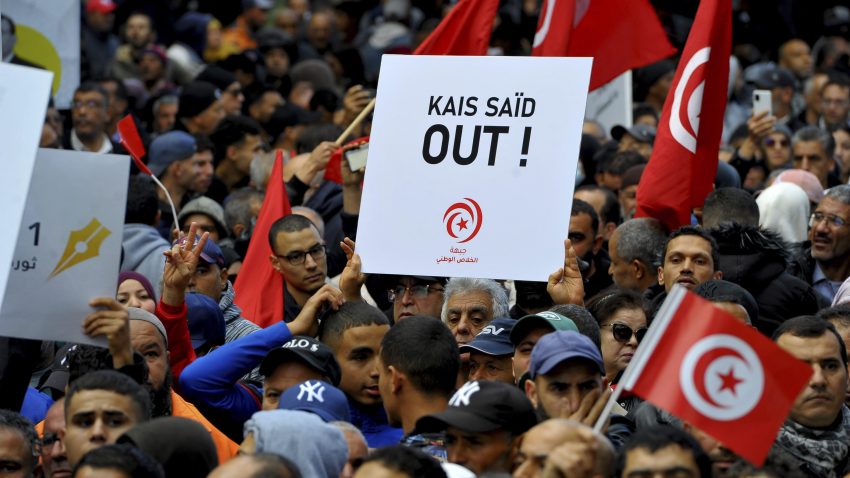In early September, Tunisian authorities arrested Mondher Ounissi, the interim head of the Ennahda opposition party, and Abdel Karim Harouni, the head of the party’s Shura Council. As the latest in a wave of arrests targeting Tunisian opposition figures, the detentions had a repetitive feel that reinforced the status quo, rather than signaling an escalation of the country’s democratic erosion under President Kais Saied.
Nevertheless, coverage of the arrests in local media temporarily drowned out some of the more immediate challenges Tunisians have been dealing with in recent months, including inflation, scarcity of essential food staples like bread and sugar, and a state moving closer toward financial default.
In fact, the two stories are inseparable, marking the two constants of Saied’s Tunisia: Dissidents and opposition politicians continue to be put behind bars, and the economy continues to worsen. And if the government is silencing more and more opposition voices, it is in part because it lacks palatable solutions or a long-term plan for the economic crisis.

